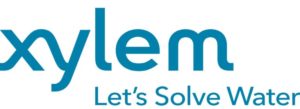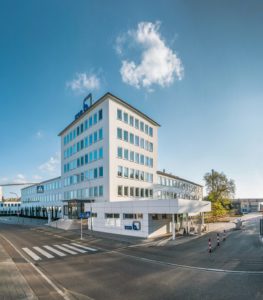Gardner Denver, Inc. Reports Second Quarter Results
Gardner Denver, Inc. announced that revenues for the three months ended June 30, 2003 were $109.4 million, a 4% increase compared with the second quarter of the previous year and an 8% increase compared to the three months ending March 31, 2003. Diluted earnings per share (DEPS) in the three-month period of 2003 were $0.33, compared to $0.34 in the previous year, and 50% better than DEPS of $0.22 in the first quarter of 2003.
CEO's Comments Regarding Results
"I am pleased with the Company's accomplishments, despite this protracted period of weak industrial demand. I believe the Company is well-positioned for revenue expansion and profitability improvements through operating leverage when the U.S. industrial economy recovers. We are actively developing new, more efficient products to better penetrate the markets we serve. We are reducing our manufacturing costs through process improvements and capital investments and developing the abilities of our supply and distribution partners to enhance our operating results. The U.S. industrial economy has not improved significantly, presenting the most challenging volume and pricing environment since the early 1980's.
However, our penetration of international markets has partially offset weak domestic demand and we continue to improve operations, our balance sheet and cash flow. I am pleased with the material and manufacturing cost reductions and lead time improvements we are achieving and expect to see further margin expansion from these when the U.S. industrial economy improves and we leverage these benefits through incremental revenue volume," stated Ross J. Centanni, Chairman, President and CEO. "We remain focused on controlling spending, improving our operations and reducing costs. Selling and administrative expenses for the second quarter of 2003 increased 2% compared to the same period of the previous year, primarily due to unfavorable foreign currency exchange rates. Excluding the impact of foreign currency exchange rate changes, selling and administrative expenses decreased approximately 3% from the prior year period due to cost reductions, including acquisition integration, despite higher sales commissions and fringe benefit costs."
"I am pleased to report that we are continuing to improve our balance sheet. Our receivables remain in excellent condition and we are beginning to see some improvement in inventory turnover, despite the positioning of some drilling pump inventory for early third quarter shipments and to enable us to respond more quickly to future increases in demand. I anticipate that inventory turnover will continue to improve through the remainder of the year and that inventory reductions will also result. We will expand the use of Lean Manufacturing techniques, implement further manufacturing process improvements, re-balance our domestic supply chain as a result of re-sourcing castings and work with new suppliers to improve their responsiveness to our requirements.
Cash flow from operations totaled almost $9 million for the first half, which enabled us to repay more than $9 million in debt and continue investing capital to improve our operations. The inherent ability to continue generating strong cash flows in a period of weak economic demand is a key strength for our Company. In the first half of 2003, we invested almost $6 million in capital expenditures to reduce costs and develop new products, compared to slightly less than $5 million in the same period of 2002. For the year, we expect to invest $14-$16 million to improve our operations. At the end of June, debt represented less than 32% of our capital structure (debt plus equity), the lowest level in our history as an independent company, which better positions us to pursue our strategies for growth, including synergistic acquisitions."
Outlook
Looking forward, Mr. Centanni stated, "The growth in the U.S. industrial market remains relatively stagnant, but we believe that the outlook for the balance of the year is more positive than negative. We are positioning the Company for growth in Asia through the establishment of a Chinese packaging operation in the fall of 2004, which will also facilitate further material cost reductions as we access lower-cost suppliers. We are strengthening our distribution channels in the U.S. and Europe through further training and development. Although significant near term increases in orders for compressed air products are not anticipated through the third quarter, we believe Gardner Denver is positioned to respond quickly when orders begin to increase." "We expect improved demand for petroleum pumps and replacement parts if North American rig counts continue to rise. In the second quarter, we consumed some of the backlog added earlier in the year and, therefore, future shipments will continue to be reliant upon order conversion for the balance of the year. We are striving for lead-time reductions and have begun to position drilling pump inventory so that we can respond more quickly to increases in demand. If natural gas prices remain elevated, supported by an economic recovery, demand for well servicing and drilling could return to higher levels, stimulatingdemand for petroleum pumps in the second half of 2003."
"We believe that the more significant aspects of re-sourcing our castings are behind us. The financial results of the second quarter of 2003 included a depreciation charge to write-off pattern modification fees from casting suppliers no longer servicing the Company. We expect to continue to respond to on-going supply issues over the balance of the year as we modify and re-balance our casting supply chain. Nevertheless, the Company continues to benefit from lower material costs and reduced concentration in our supply relationships as we resolve these issues. To date, the Company has been able to avoid significant supply disruptions while managing these changes."
"The Company's postretirement expenses have not increased as significantly as originally anticipated due to lower staffing levels and less dramatic increases in medical costs. However, similar to many other companies in the U.S., these expenses are expected to be higher in 2003 than in previous years. We now expect the DEPS deterioration as a result of increased fringe benefits to be approximately $0.08 to $0.10 compared to 2002, rather than previous expectations of an unfavorable impact of $0.15 to $0.18 per share. We expect that material cost reductions, process improvements to operations and further capital investment will offset most of the volume reductions and unfavorable mix in our Pump Products segment. This unfavorable mix is a result of decreased drilling pump sales, which typically generate above-average margins. The Company currently expects DEPS to be approximately $0.30 to $0.34 for the third quarter of 2003. Within the range of our previous guidance, DEPS is expected to be approximately $1.17 to $1.27 for the year, assuming that a modest recovery in demand for compressed air products occurs in the fourth quarter. Given the fixed-cost leverage associated with our business, our improved cost structure and more readily available drilling pump inventory, if revenues improve more substantially or incremental orders for drilling pumps are received, DEPS could exceed this outlook."
Second Quarter Results
Revenues for the three-month period increased $4.5 million (4%) to $109.4 million, compared to the same period of 2002, due to favorable changes in foreign currency exchange rates and increased shipments of petroleum pump parts. Compared to the same period of 2002, Compressed Air Products revenues increased $3.2 million (4%) as a result of favorable changes in foreign currency exchange rates. Excluding the favorable impact of changes in foreign currency exchange rates, revenues in this segment would have decreased $1.4 million (2%) due to softer U.S. and European industrial economies. However, revenues for this segment increased $5.3 million (6%) compared to the first quarter of 2003, which was the third consecutive quarter for revenue growth in this business segment despite no significant improvement in general industrial economic conditions. Pump Products revenues for the three-month period increased $1.3 million (9%) compared to the same period of 2002, primarily as a result of increased international shipments of petroleum pump parts from backlog.
Net income was $5.3 million for the three-month period of 2003, compared to $5.5 million in the same period of 2002 and $3.5 million in the previous quarter of 2003. Favorable changes in exchange rates increased net income by approximately $0.3 million in the second quarter of 2003, compared to the previous year. The 2003 results reflect an effective tax rate of 32%, compared to 34% in the previous year, as a result of benefits from higher U.S. export sales. We currently anticipate this lower tax rate to be effective for the balance of the year. DEPS was $0.33 for the second quarter of 2003, compared to $0.34 for the same period of 2002. Higher commissions and fringe benefit expenses and costs associated with the disruption within our casting supply chain have been substantially offset by cost reductions, including acquisition integration, favorable changes in exchange rates and the benefit of a lower tax rate. Compared to the three months ending March 31, 2003, DEPSincreased 50% due to increased revenue, a slight improvement in gross margin as a percentage of revenues, lower fringe benefit costs and a slight gain on the sale of an idle manufacturing facility in Syracuse, New York.
Six Month Results
Revenues for the first half of 2003 decreased slightly to $210.9 million compared to the same period of 2002, despite favorable changes in foreign currency exchange rates. Compressed Air Products revenues increased $1.9 million (1%) due to favorable changes in foreign currency exchange rates. Excluding the favorable impact of changes in foreign currency exchange rates, revenues in this segment decreased $7.1 million (4%) for the six-month period compared to the previous year, due to softer industrial economic conditions in the U.S. and Europe. Pump Products revenues for the six-month period decreased $2.5 million (7%) compared to the same period of 2002. The depressed demand for petroleum pumps resulted from previously low levels of rig count, which began negatively impacting order rates in the second half of 2001. In 2002, Pump Products segment revenues were primarily supported by drilling pump backlog carried over from 2001 orders. Net income for the six-month period of 2003 was $8.9 million ($0.55 DEPS), compared to $10.1 million ($0.63 DEPS) for the same period of 2002. Favorable changes in exchange rates increased net income by approximately $0.5 million in the first half of 2003, compared to the previous year.
Cautionary Statement Regarding Forward-Looking Statements
All of the statements in this release, other than historical facts, are forward-looking statements made in reliance upon the safe harbor of the Private Securities Litigation Reform Act of 1995, including the statements under the "CEO's Comments Regarding Results" and "Outlook" sections. As a general matter, forward-looking statements are those focused upon anticipated events or trends and expectations and beliefs relating to matters that are not historical in nature. Such forward-looking statements are subject to uncertainties and factors relating to Gardner Denver's operations and business environment, all of which are difficult to predict and many of which are beyond the control of the Company. These uncertainties and factors could cause actual results to differ materially from those matters expressed in or implied by such forward-looking statements. The following uncertainties and factors, among others, could affect future performance and cause actual results to differ materially from those expressed in or implied by forward-looking statements:
(1) the ability to maintain and to enter into key purchasing, supply and outsourcing relationships; (2) the ability toeffectively manage the transition of iron casting supply to alternate sources and the skill, commitment and availability of such alternate sources; (3) the ability to identify, negotiate and complete future acquisitions; (4) the speed with which the Company is able to integrate acquisitions and realize the related financial benefits; (5) the domestic and/or worldwide level of oil and natural gas prices and oil and gas drilling and production, which affect demand for the Company's petroleum products; (6) changes in domestic and/or worldwide industrial production and industrial capacity utilization rates, which affect demand for the Company's compressed air products; (7) pricing of Gardner Denver products;
(8) the degree to which the Company is able to penetrate niche and international markets; (9) the ability to attract and retain quality management personnel; (10) market performance of pension plan assets and changes in discount rates used for actuarial assumptions in pension and other post-employment obligation and expense calculations; (11) the continued successful implementation of cost reduction efforts; (12) thecontinued ability to effectively manage and defend litigation matters pending, or asserted in the future, against the Company; (13) the successful implementation of the Company's strategic initiatives and partnering relationships; (14) the acceptance of the Company's new product offerings; and (15) the continued successful implementation and utilization of the Company's selectronic services. The Company does not undertake, and hereby disclaims, any duty to update these forward-looking statements, even though its situation and circumstances may change in the future. Comparisons of the financial results for the three and six-month periods ended June 30, 2003 and 2002 follow.
Source: Gardner Denver, Inc.





